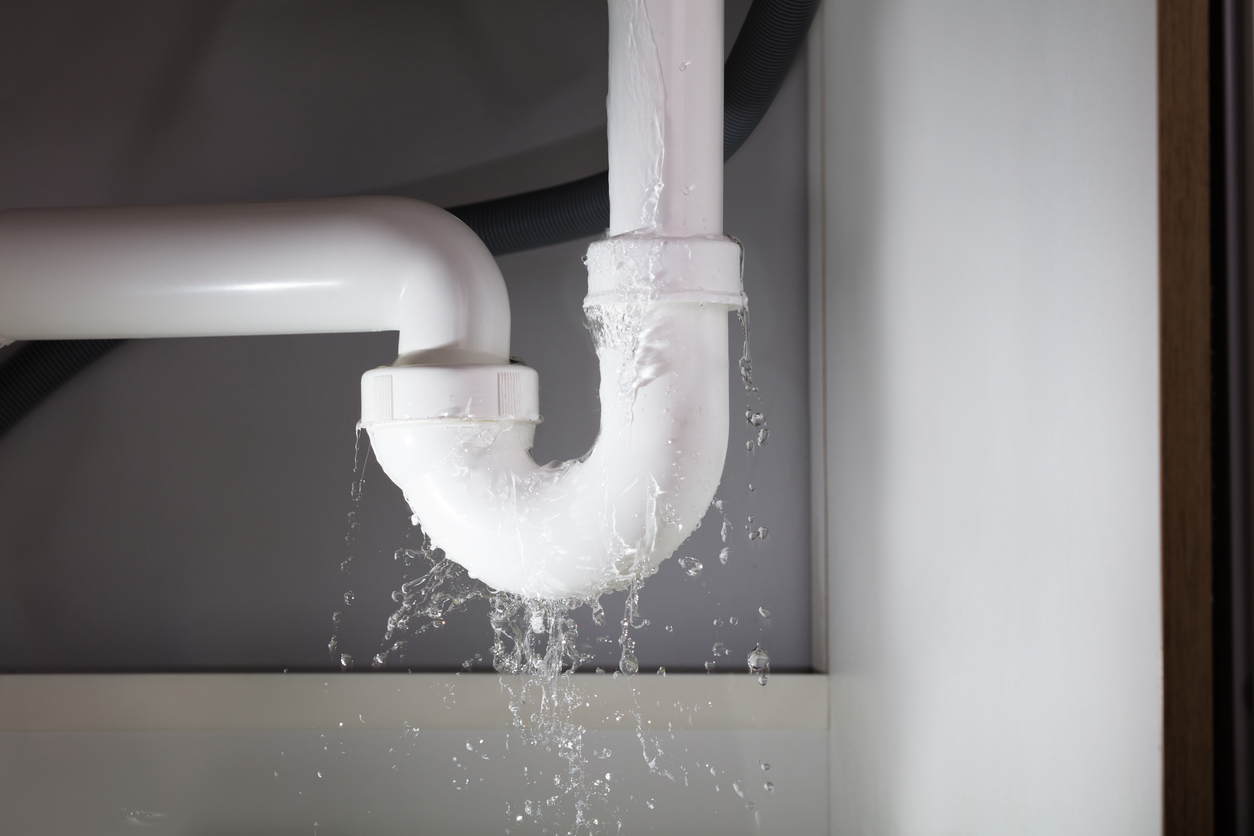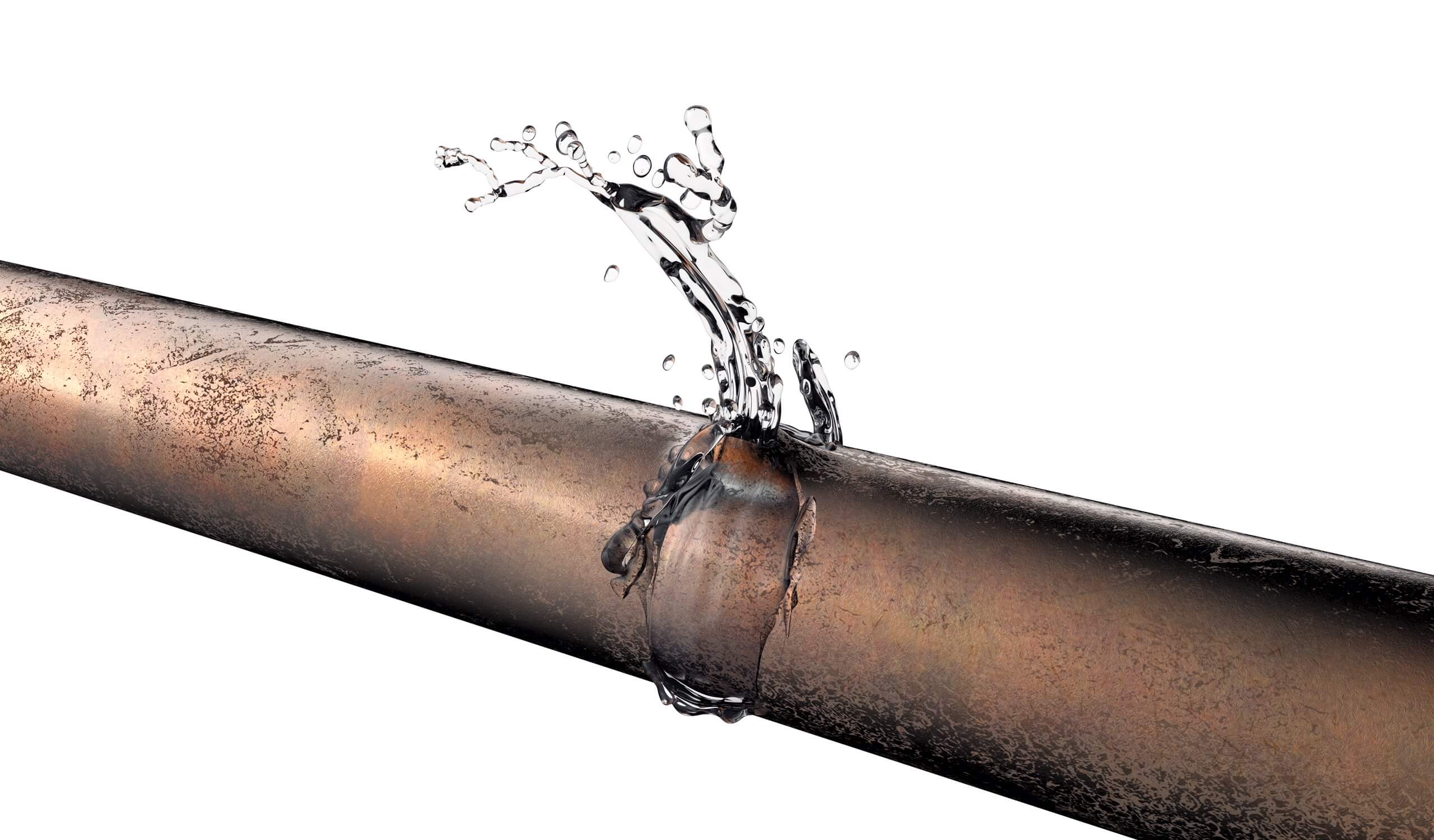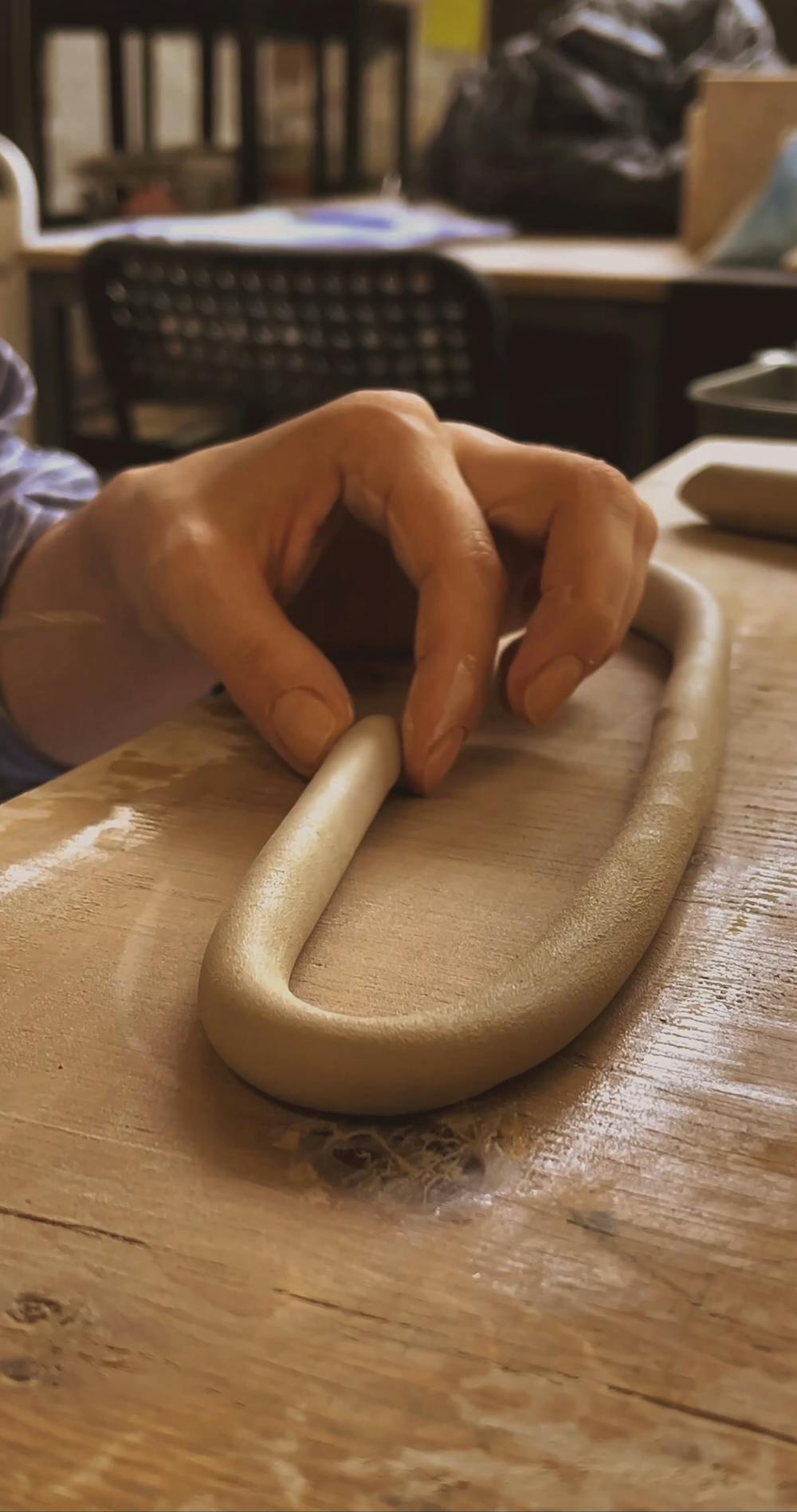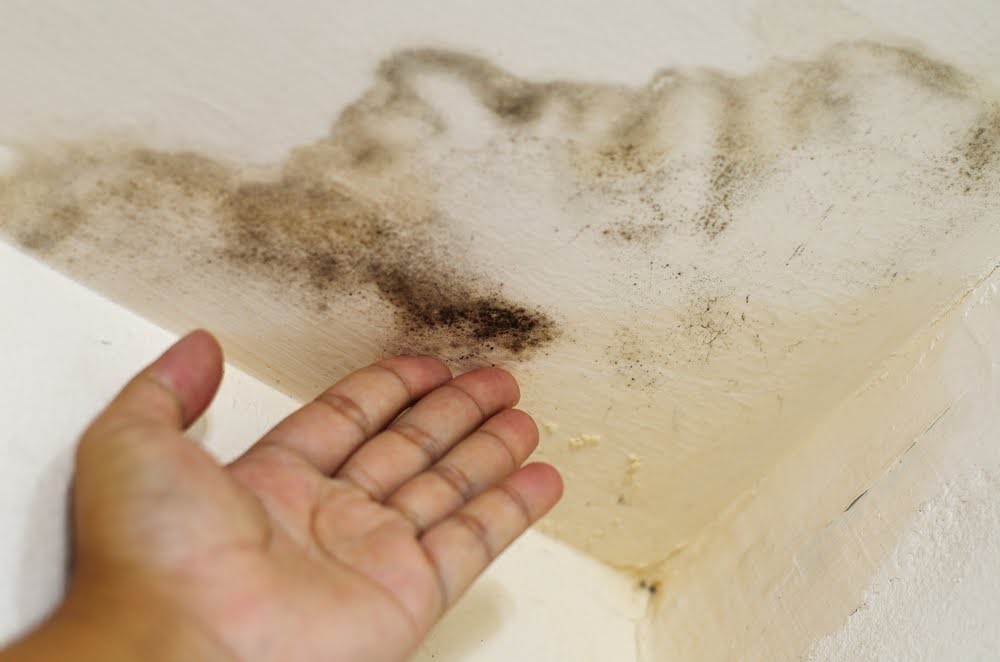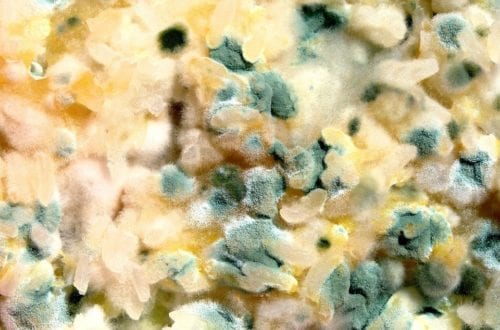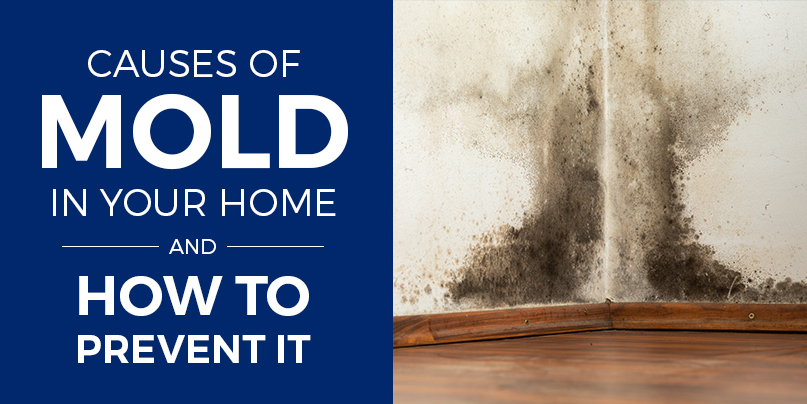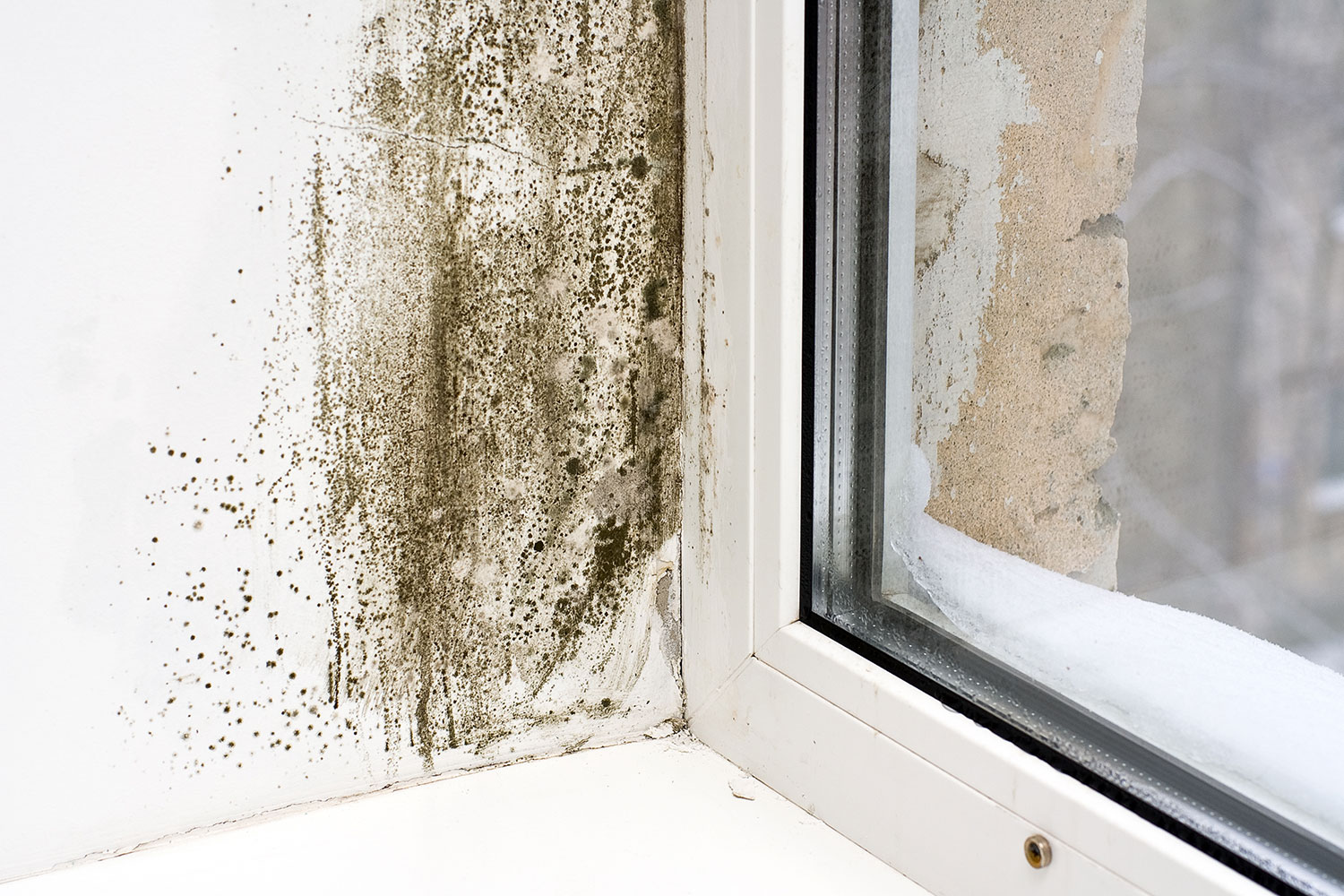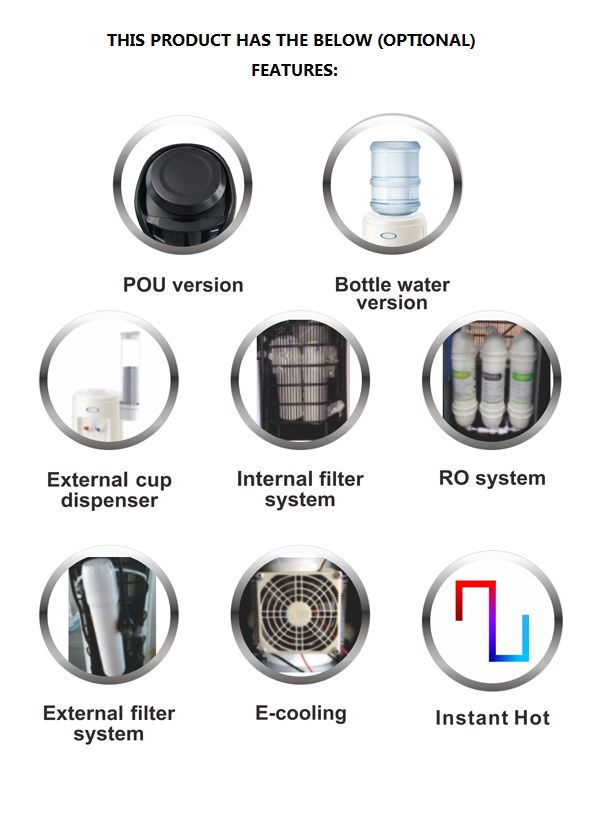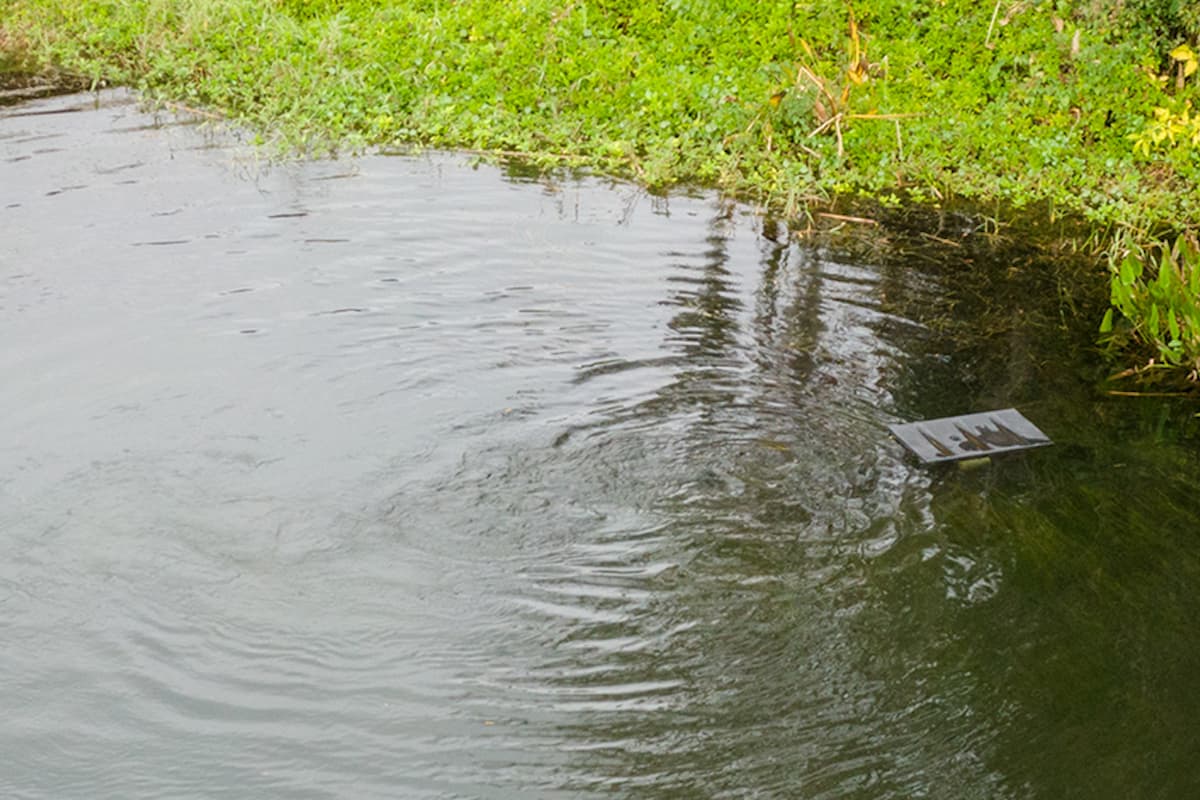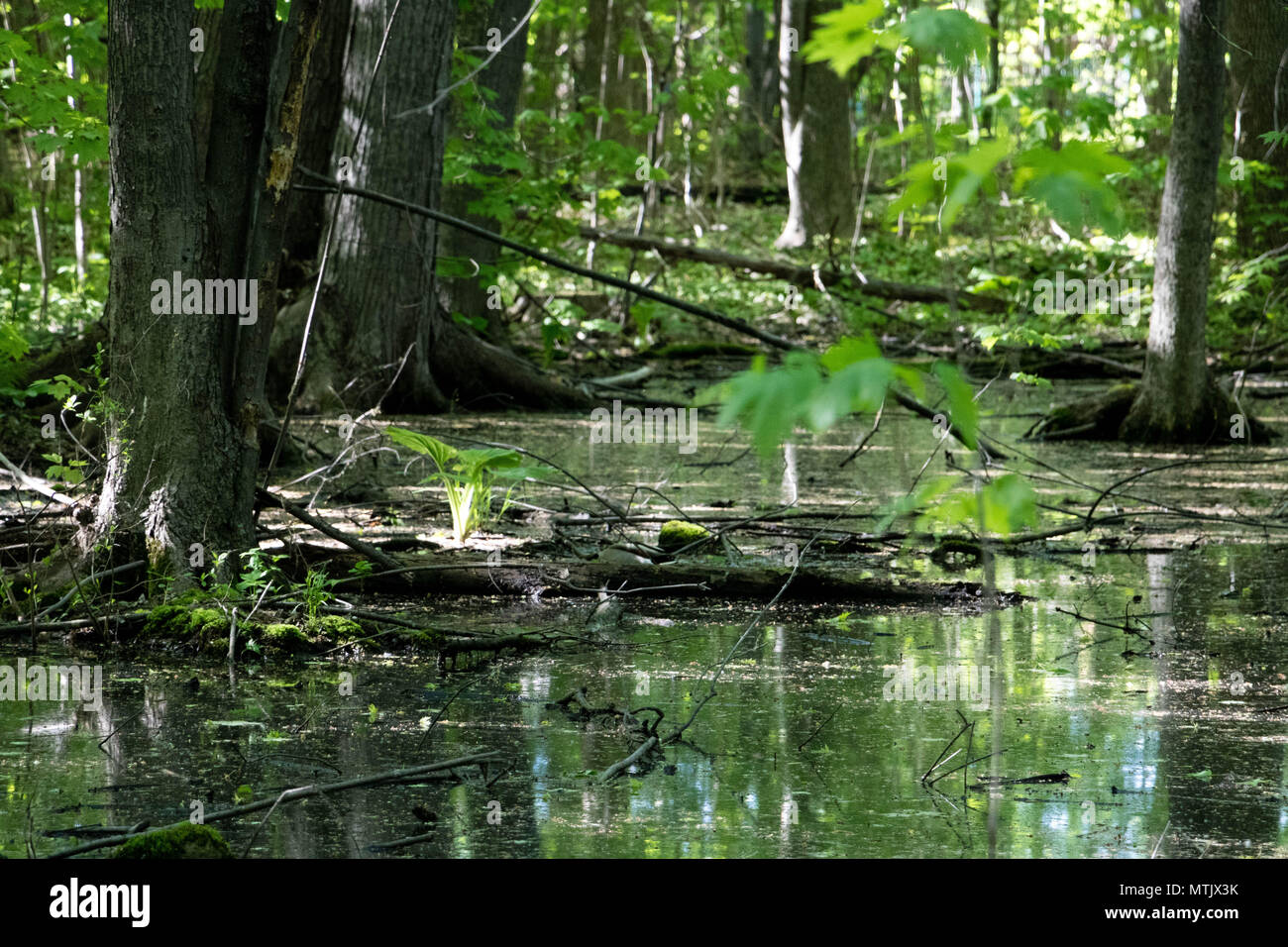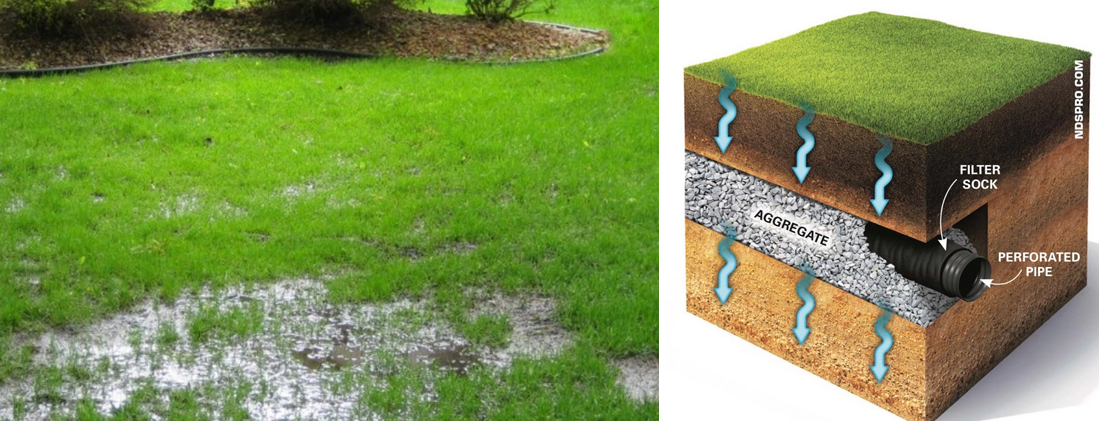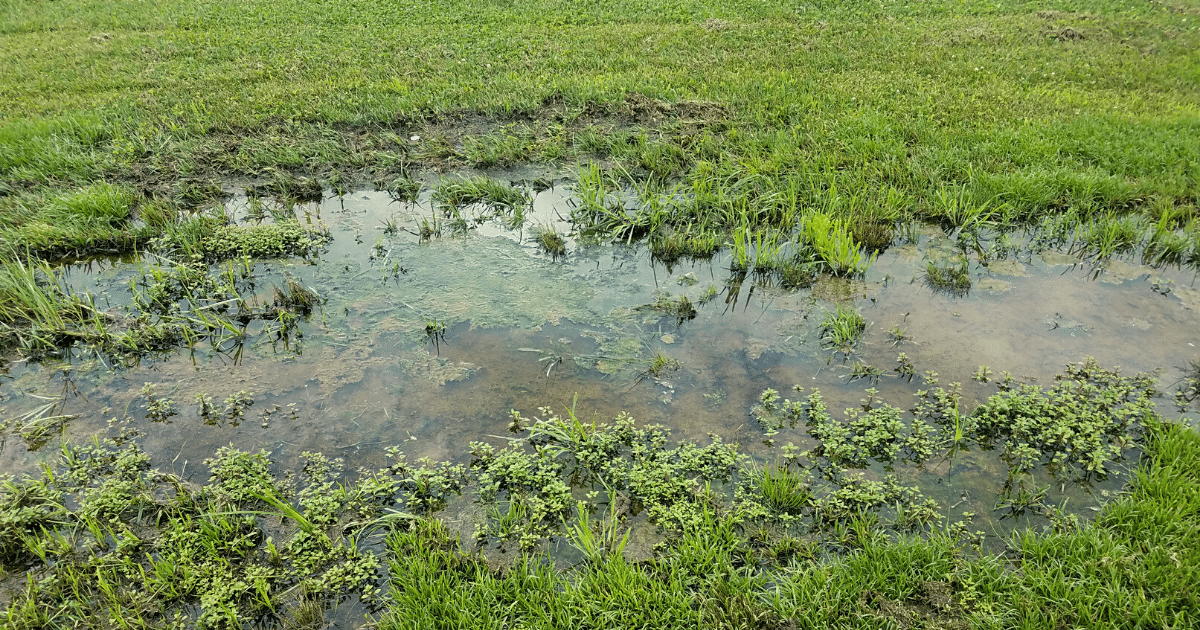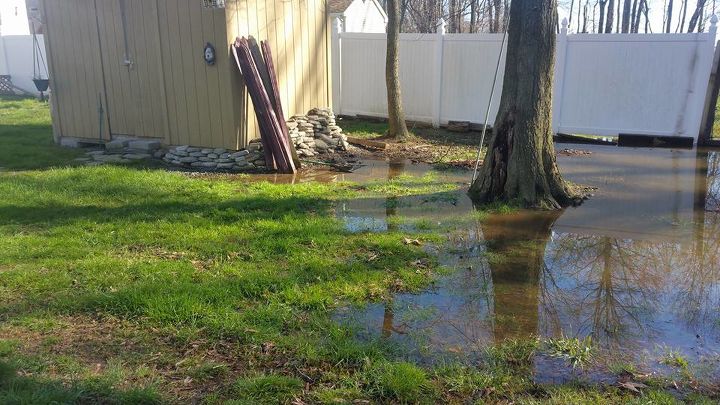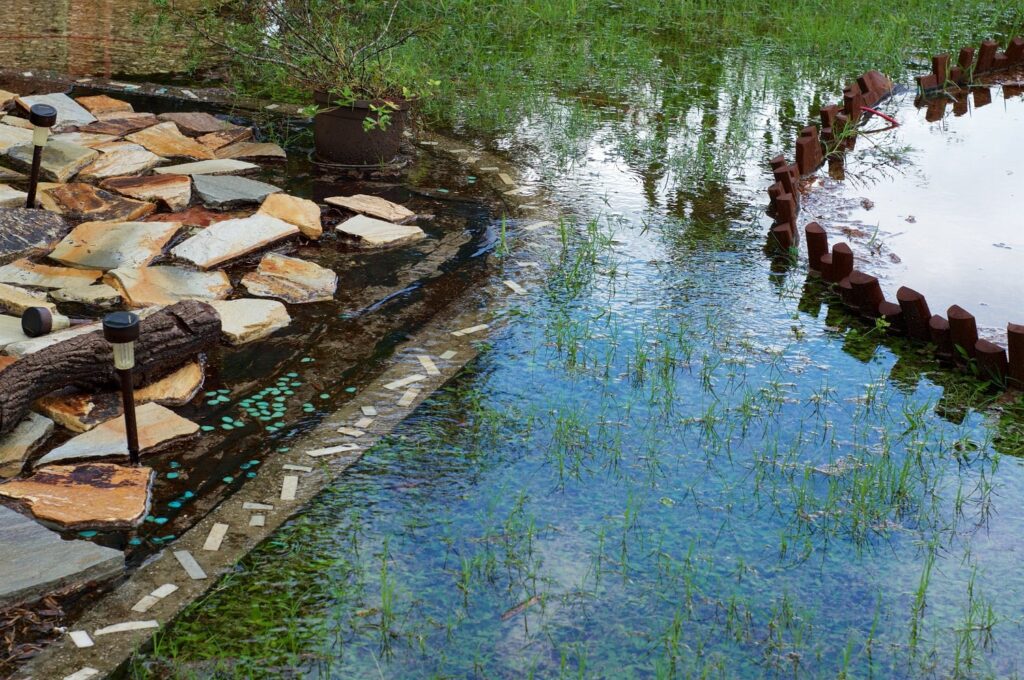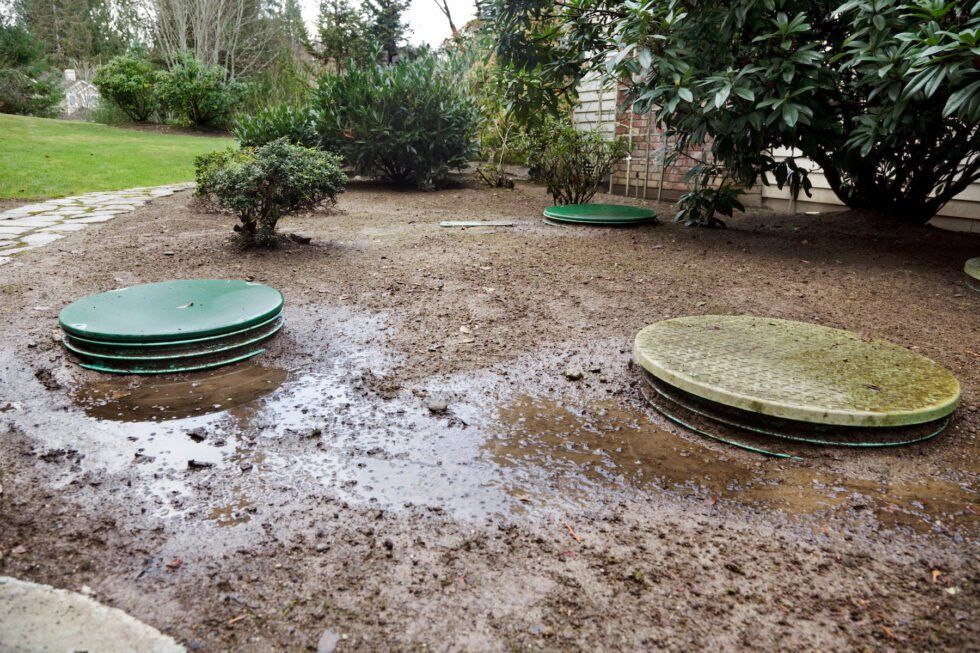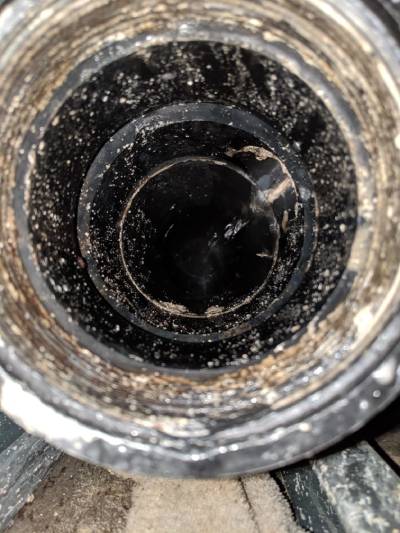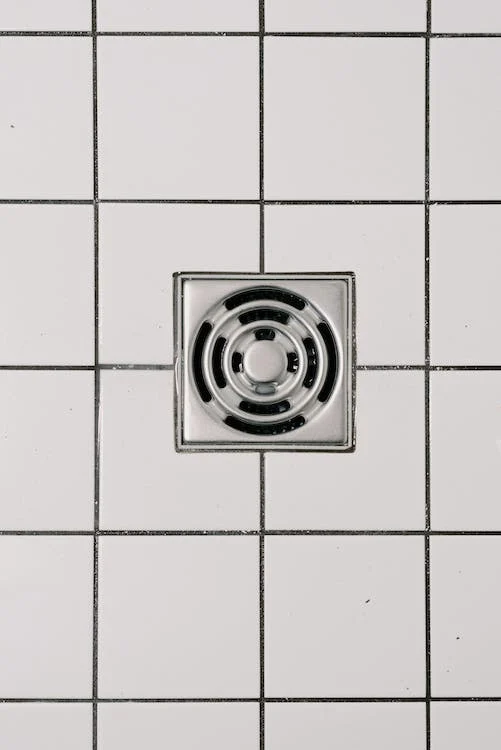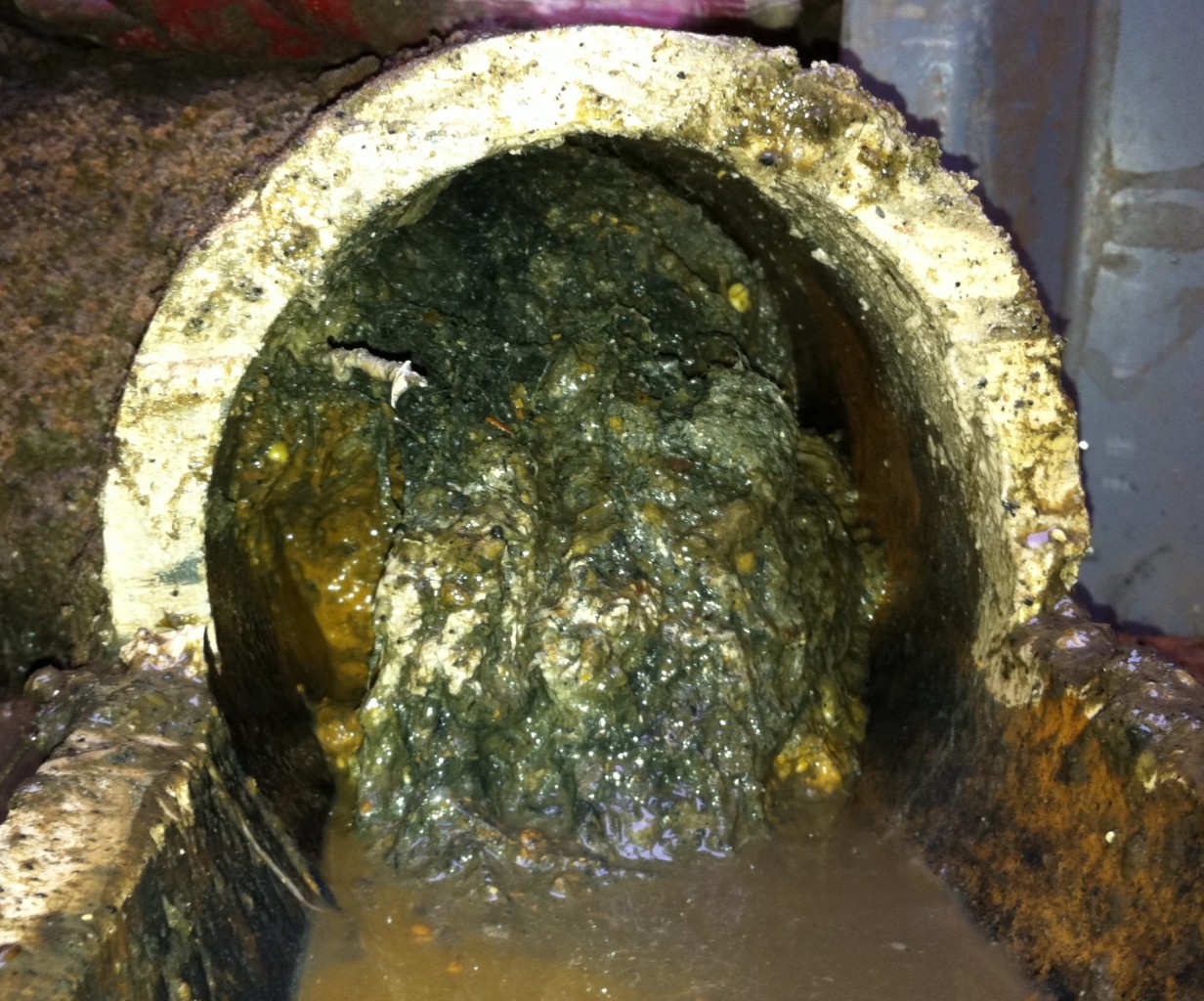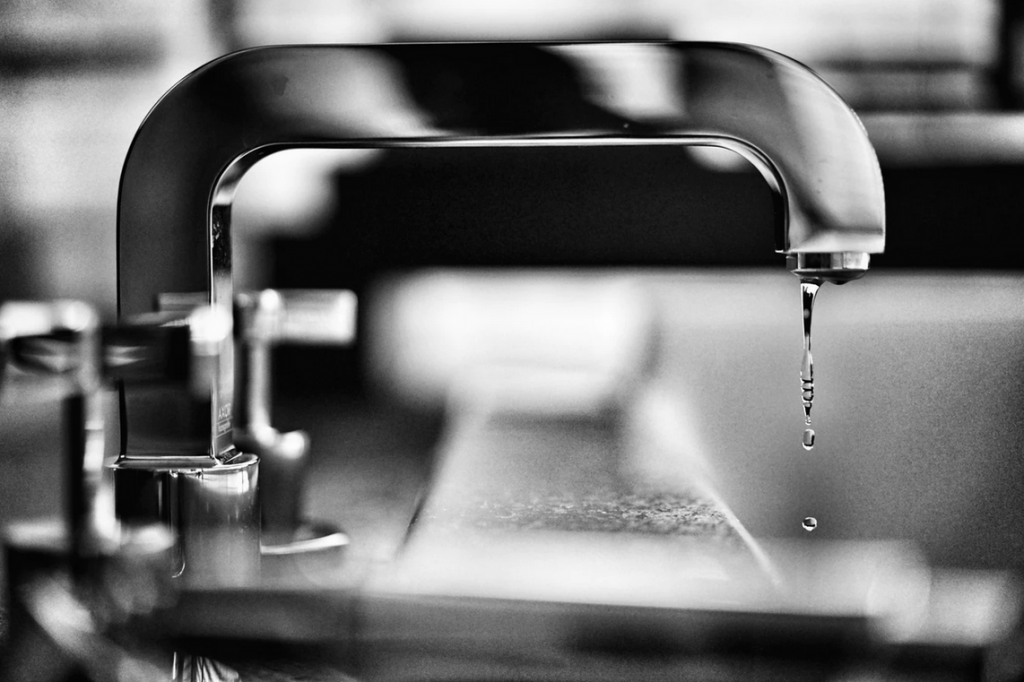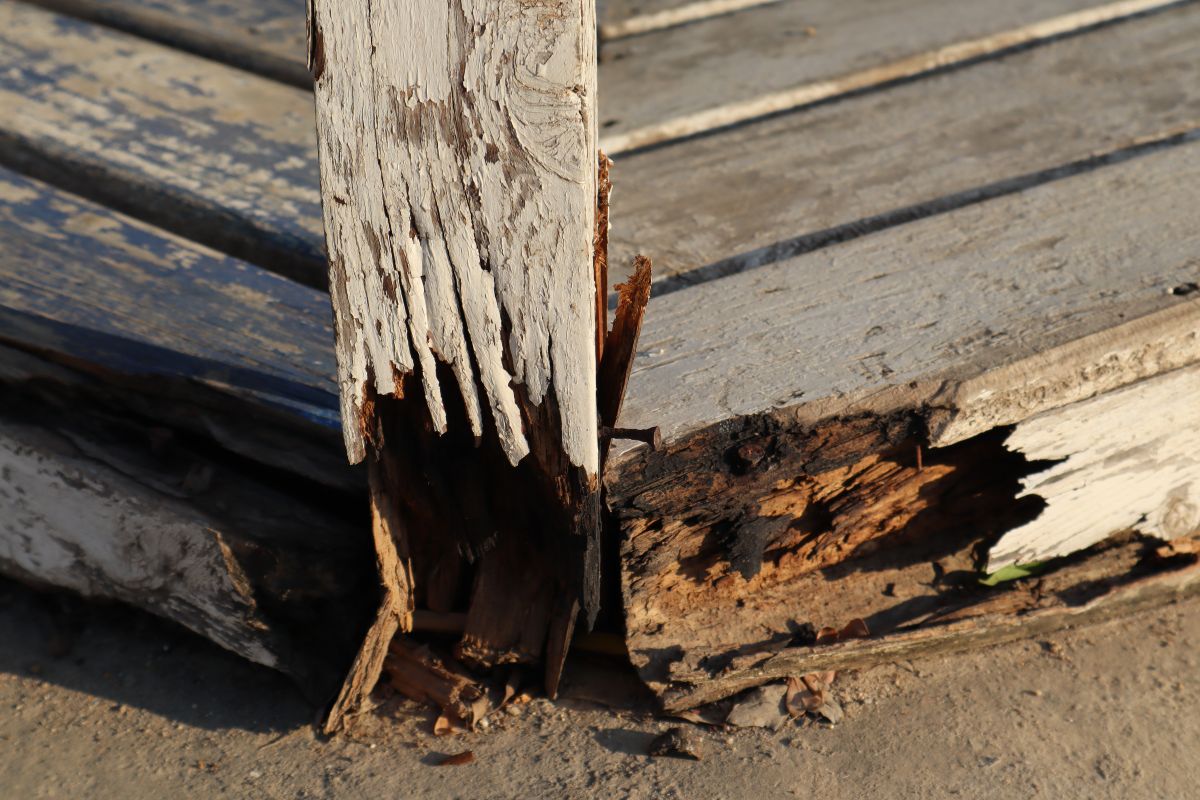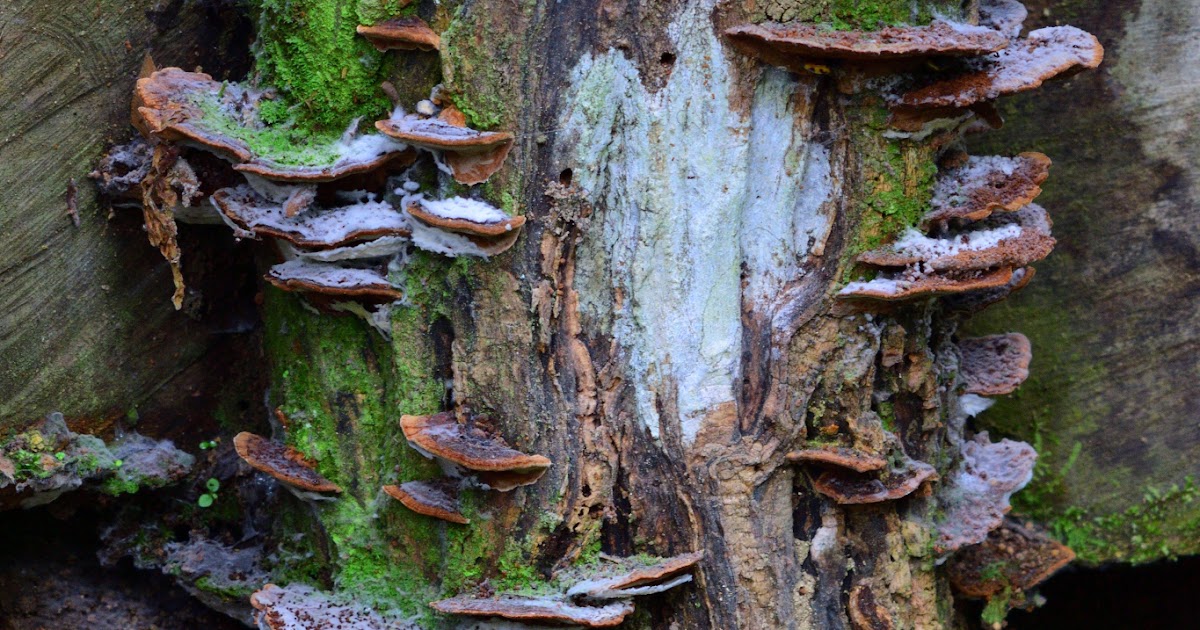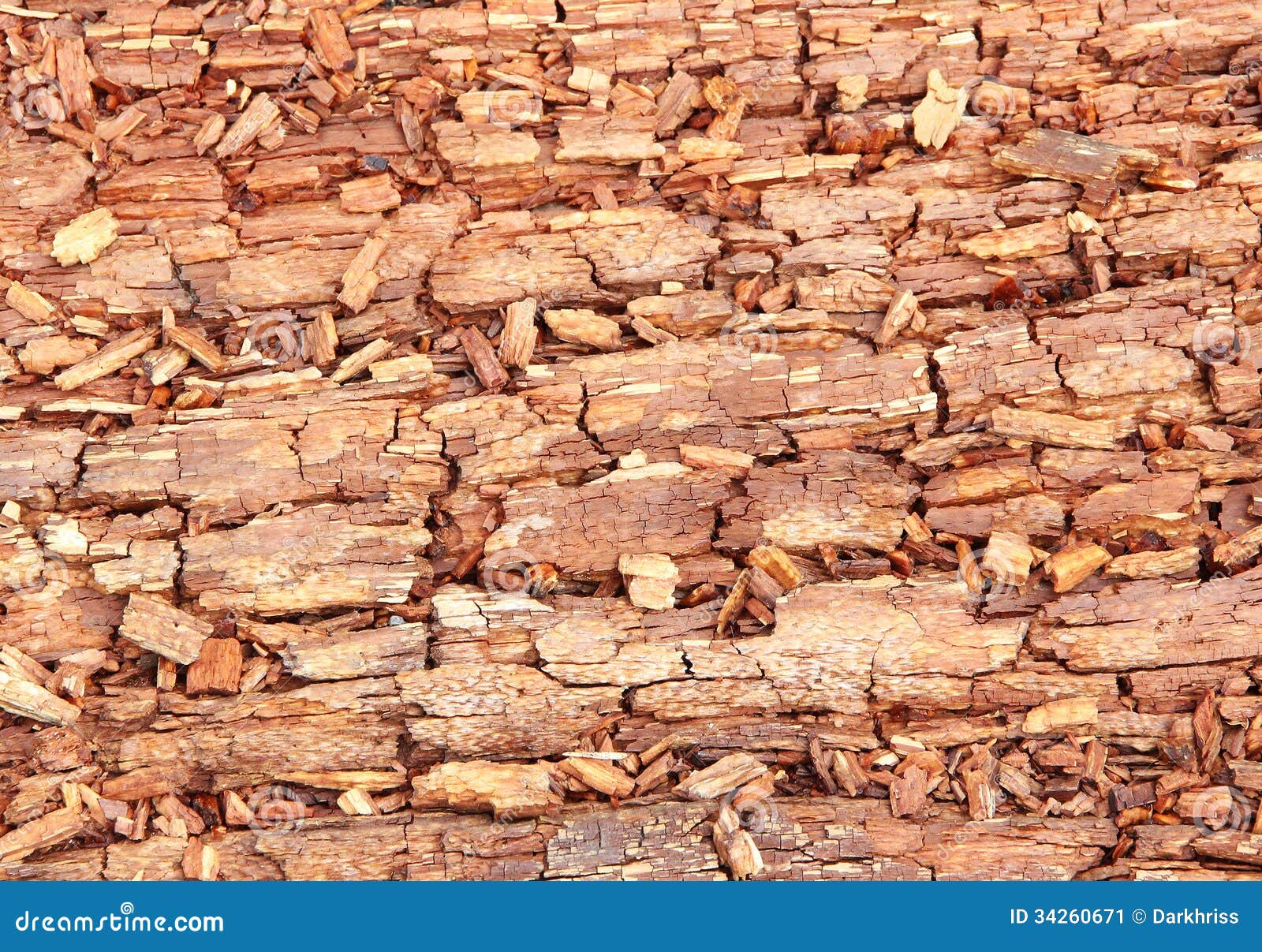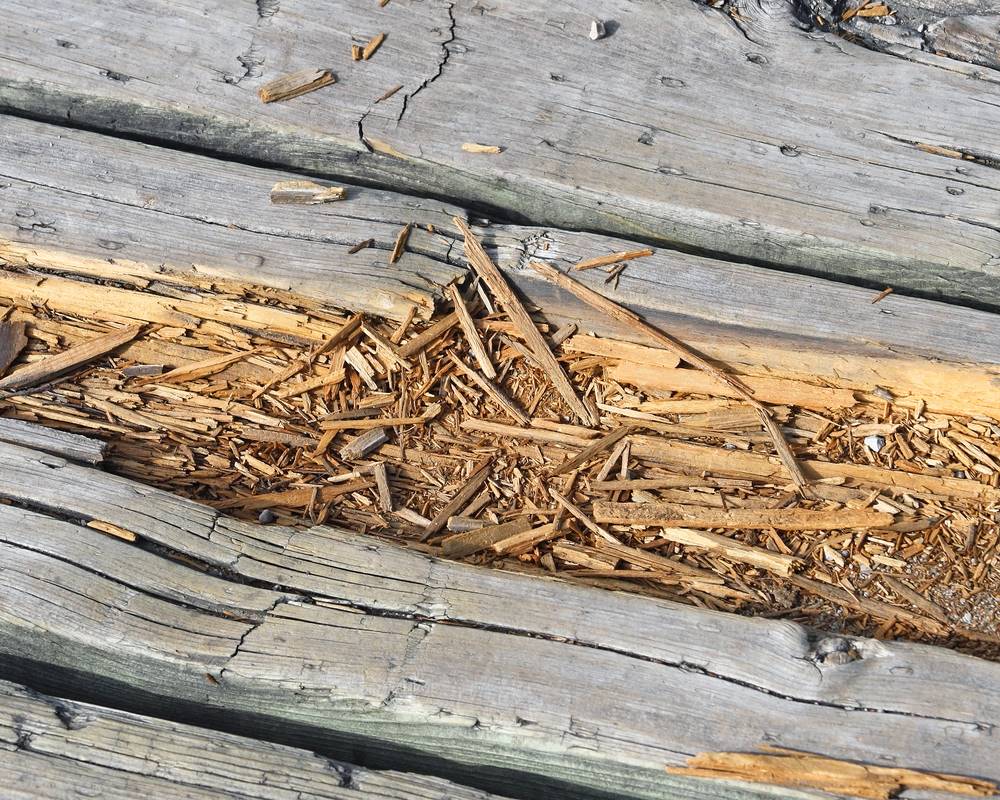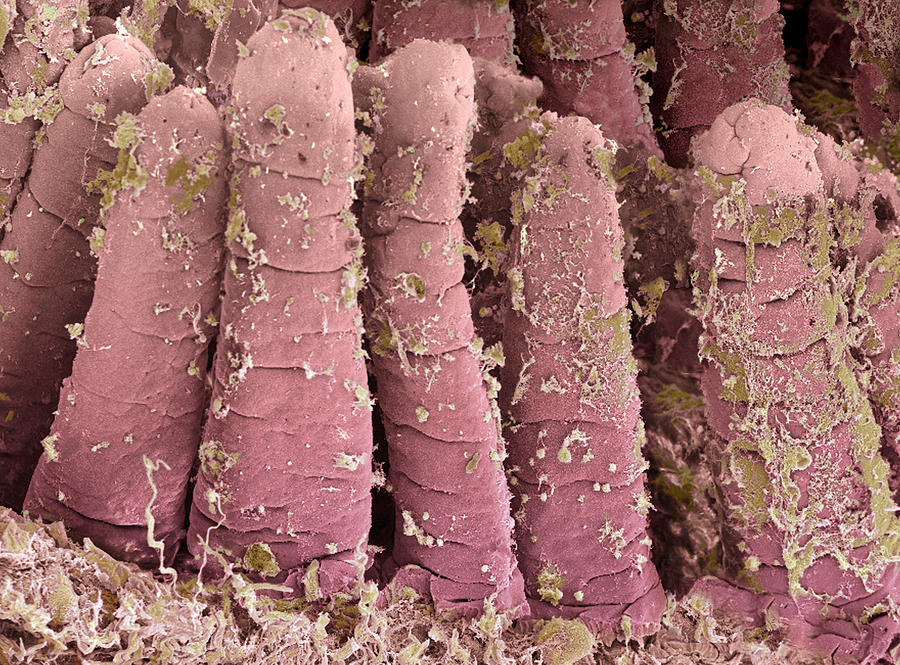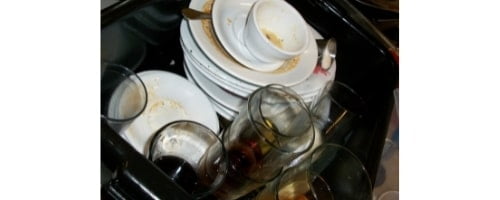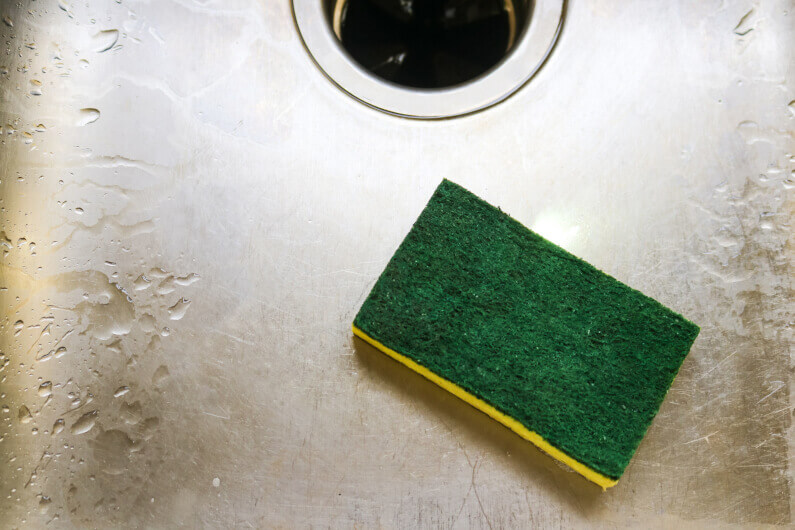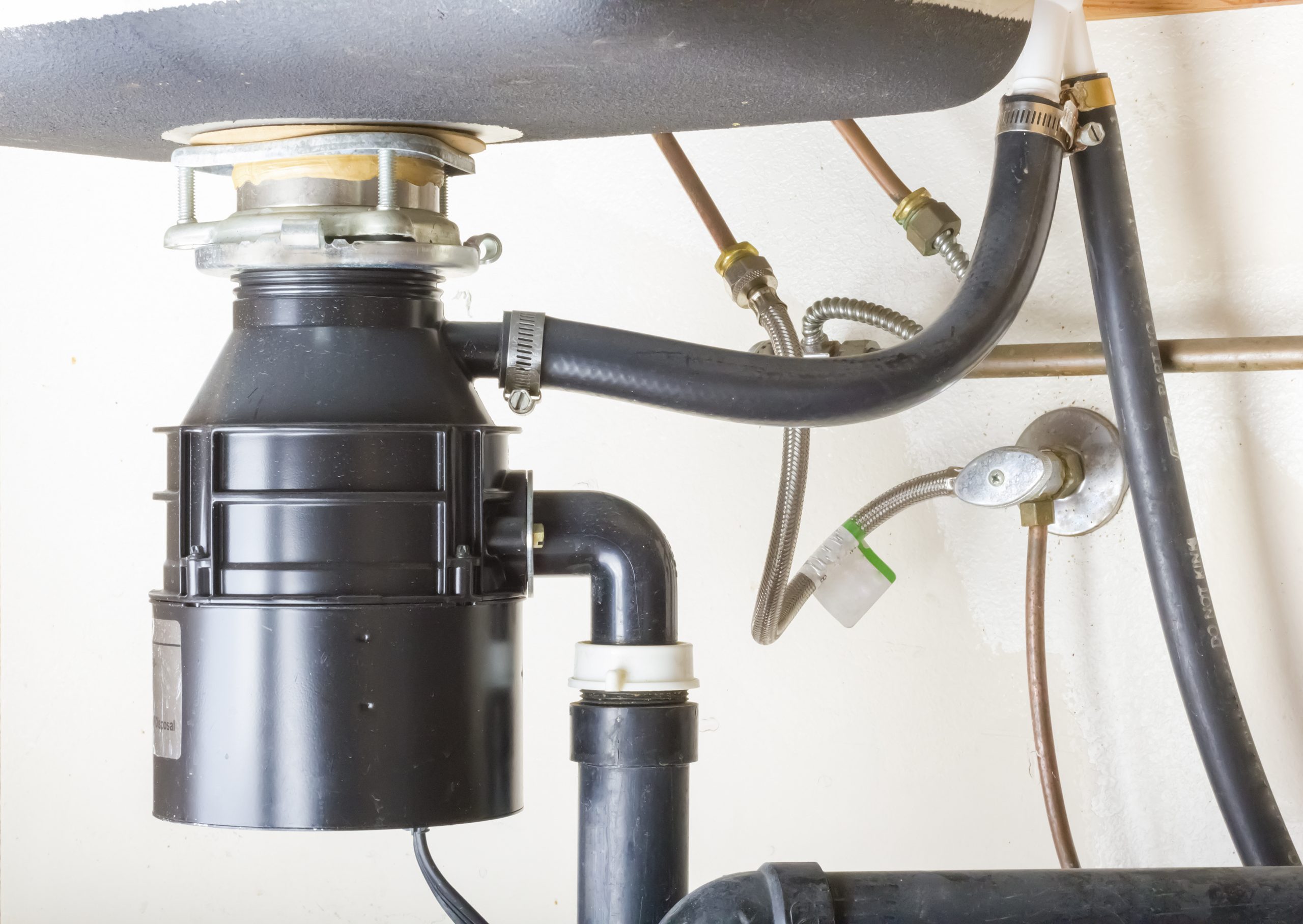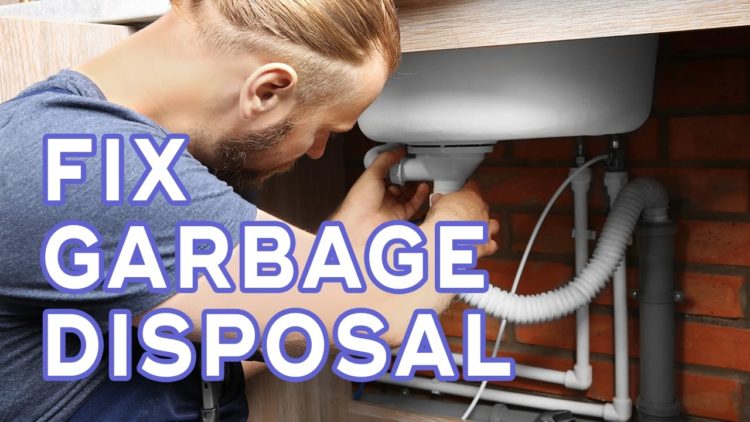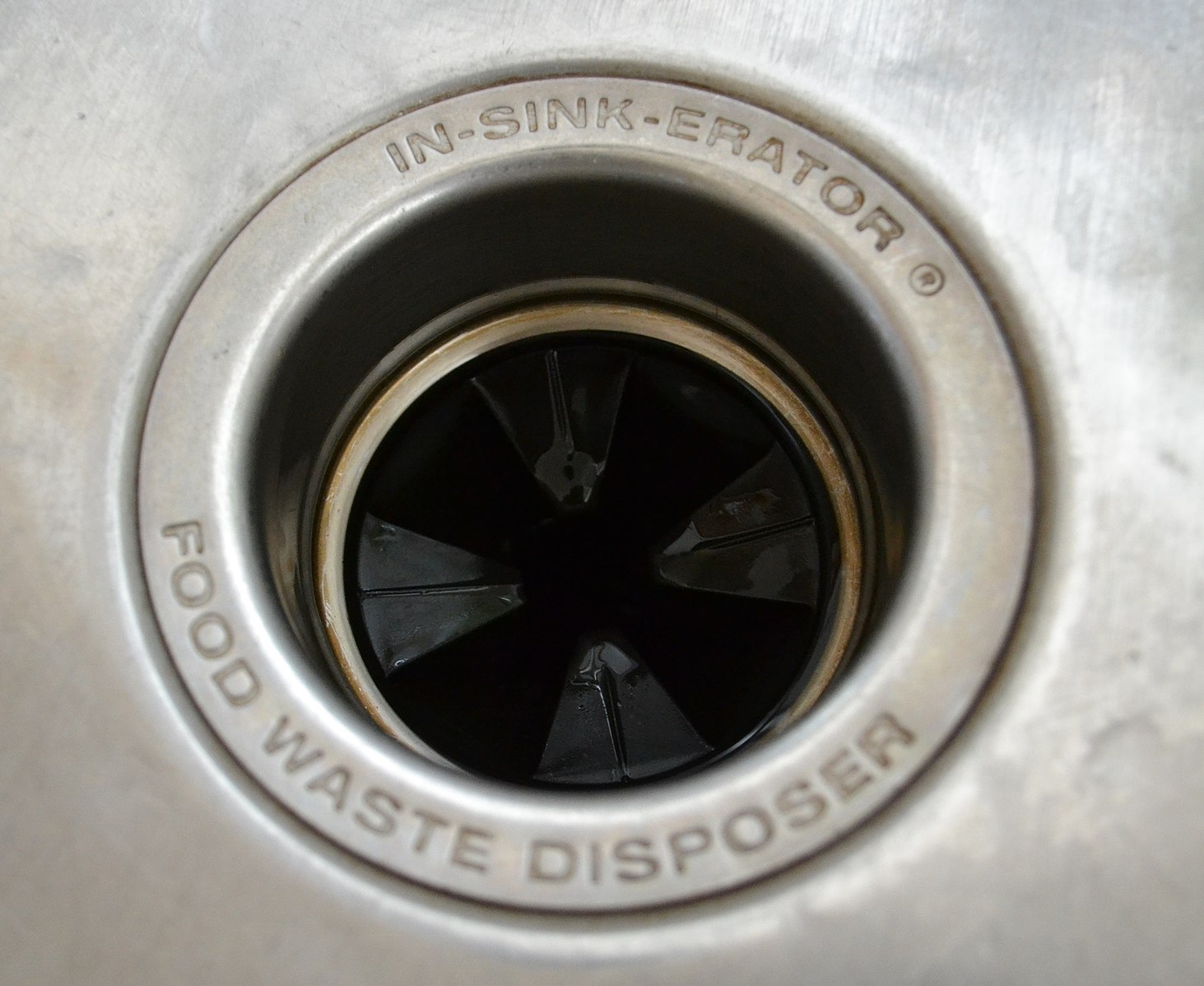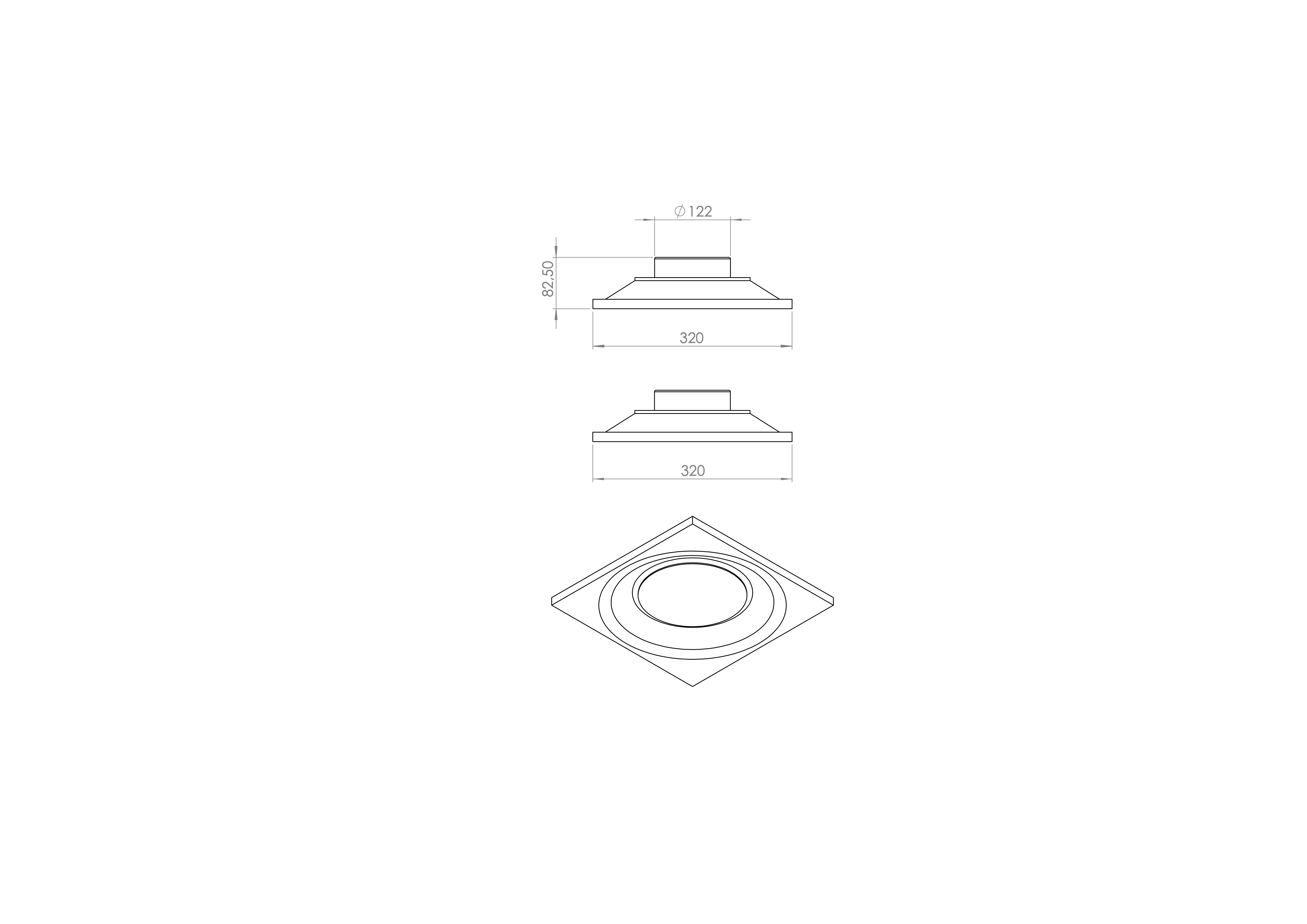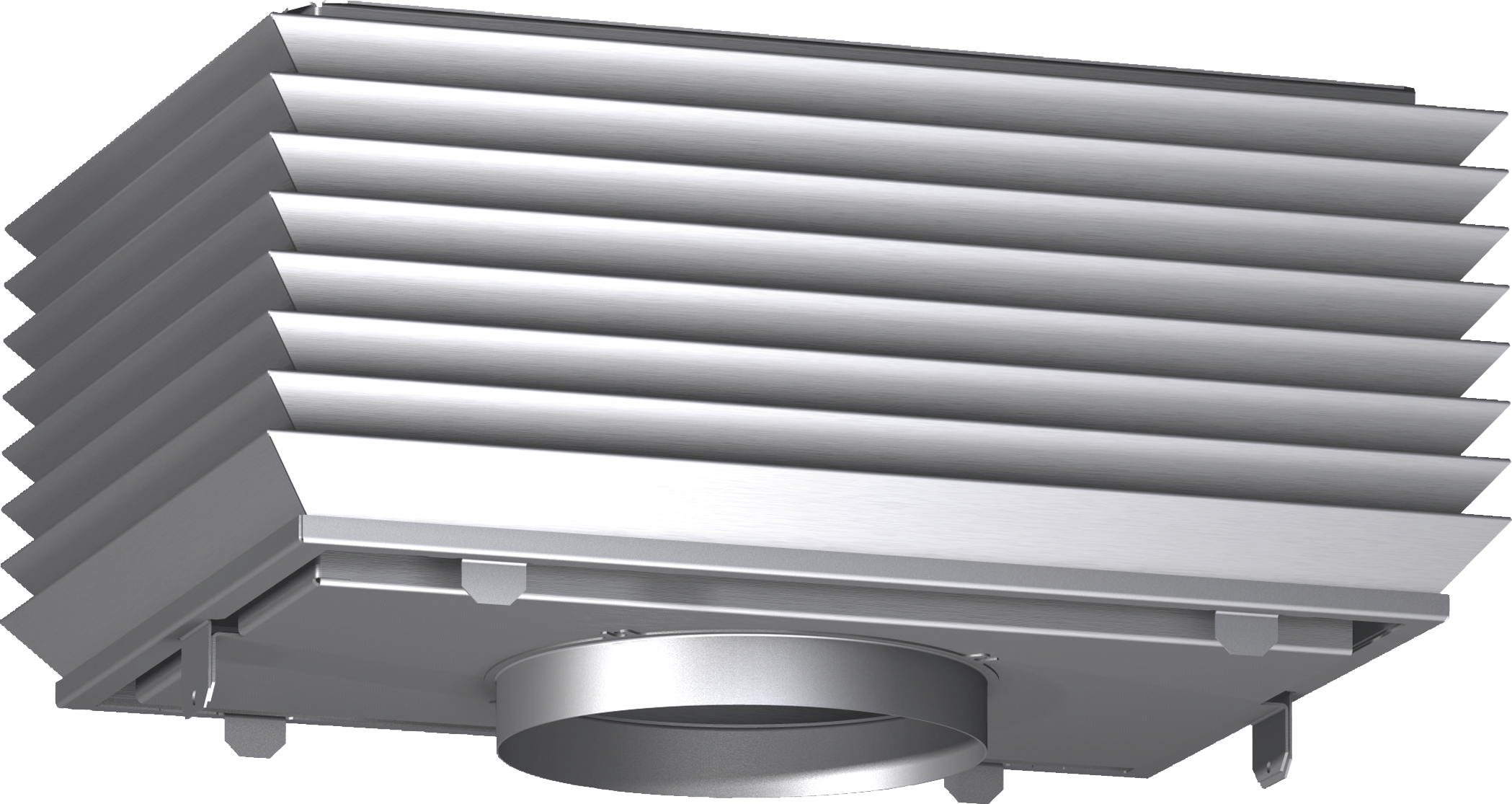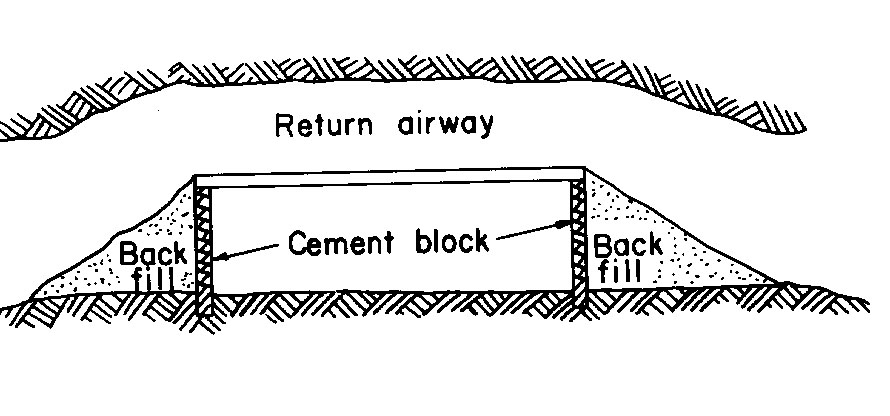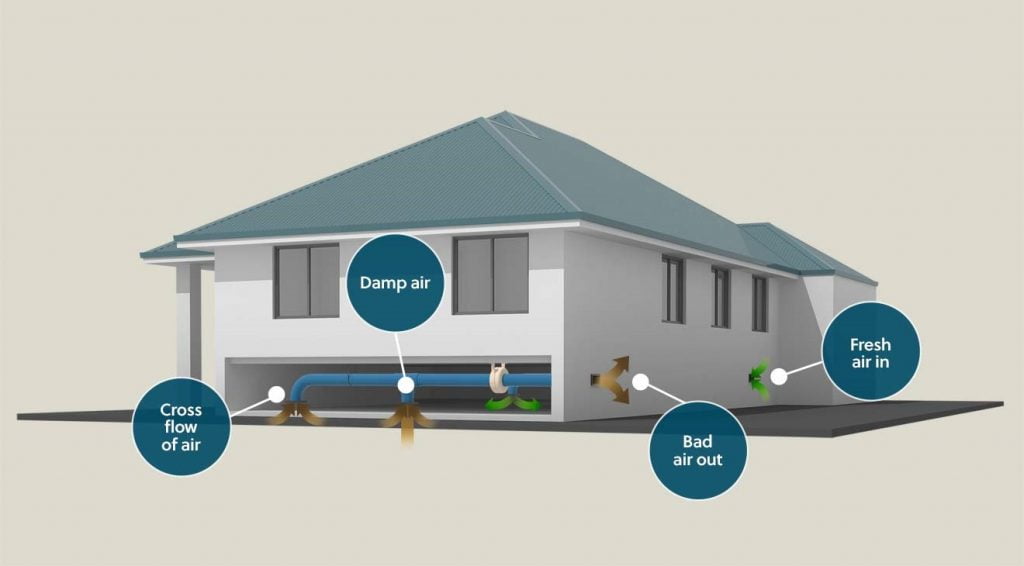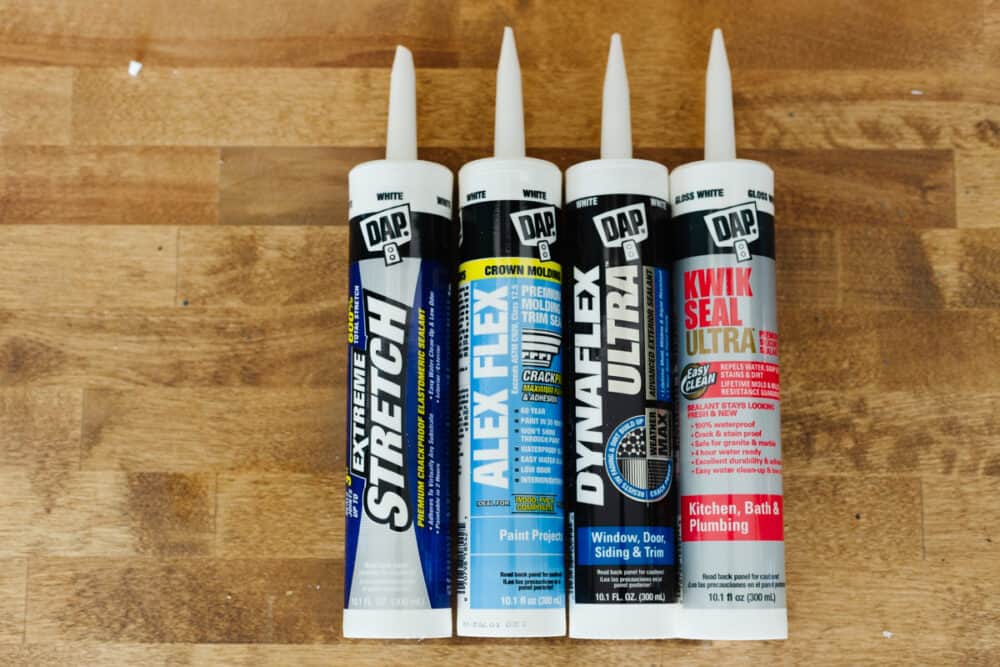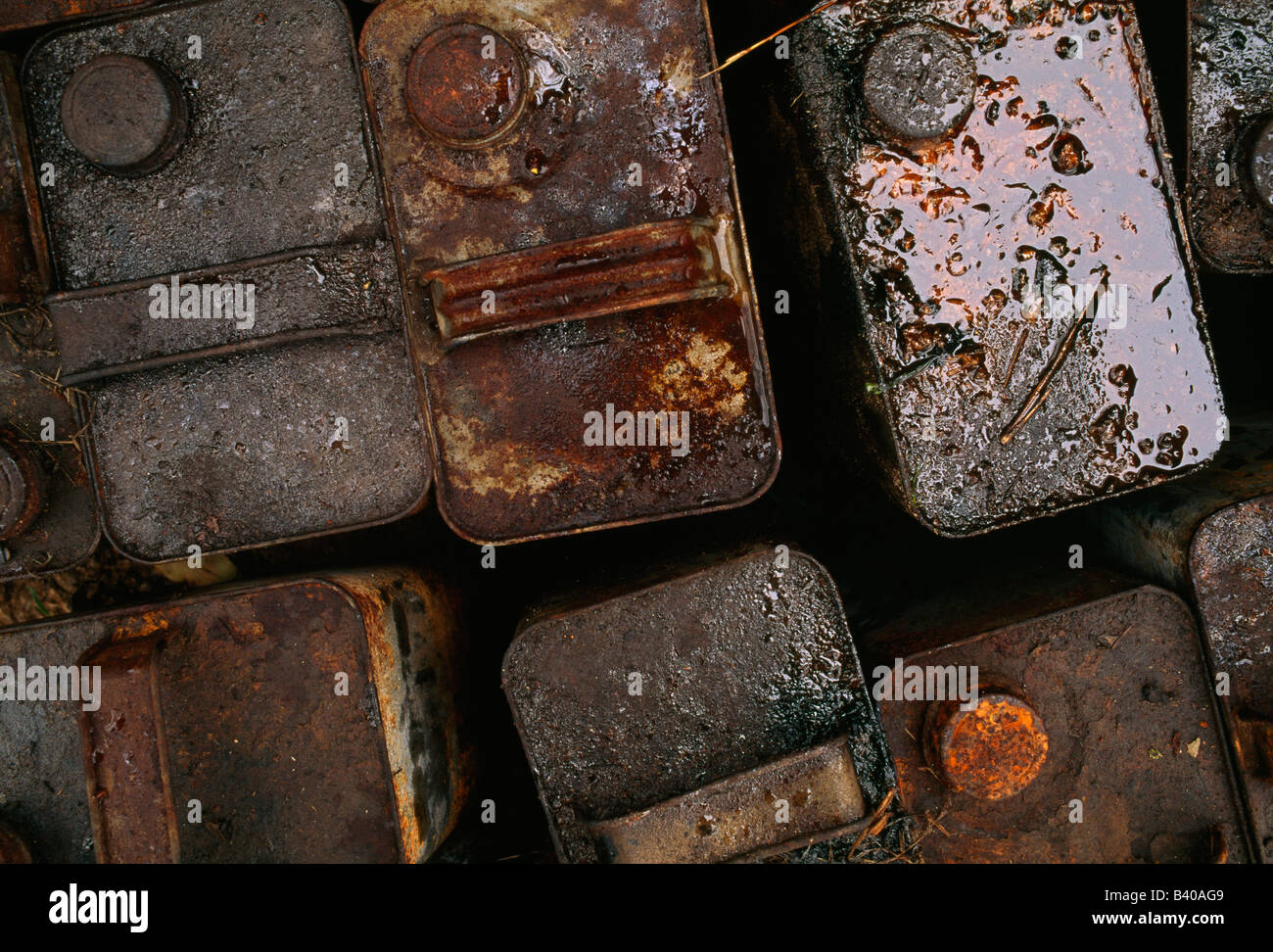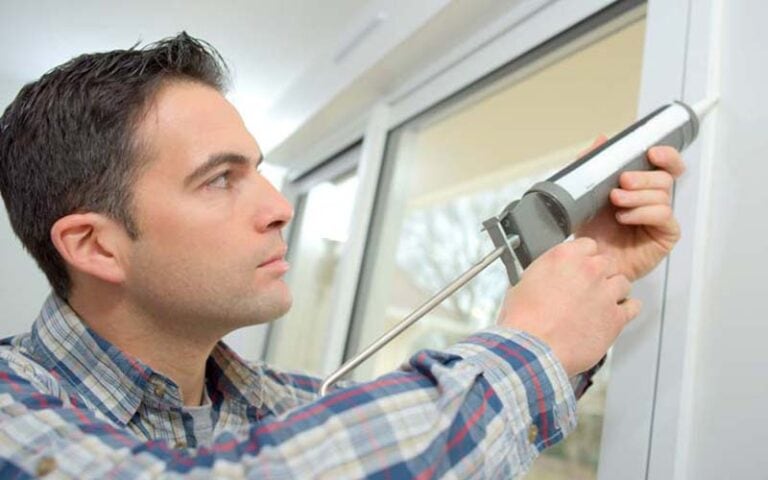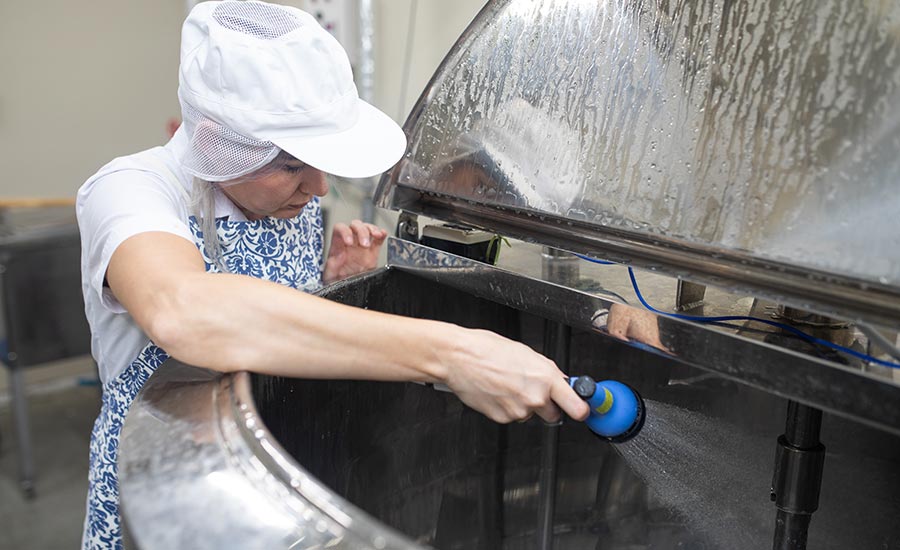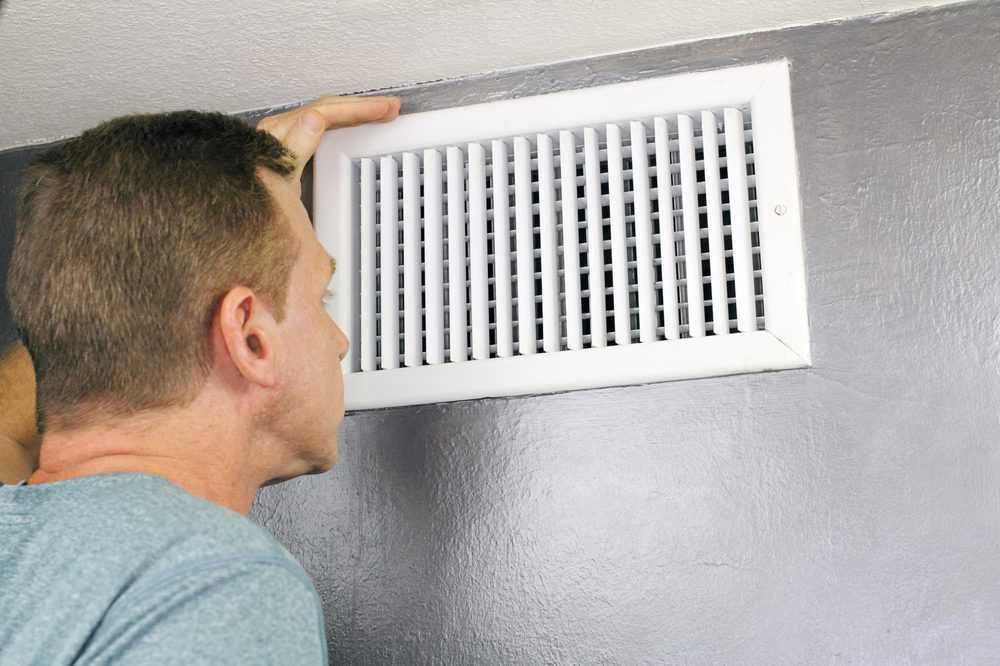A common cause for a damp smell under the kitchen sink is leaky pipes. Over time, pipes can become damaged and develop small cracks, allowing water to seep out and collect in the cabinet below. This creates a perfect environment for mold and mildew to grow, which can contribute to the unpleasant odor. If you notice any signs of water damage or a musty smell, it's important to address the issue promptly to prevent further damage to your pipes and cabinets.1. Leaky Pipes
Mold growth is not only unsightly, but it can also be harmful to your health. The dark, damp environment under your kitchen sink is the perfect breeding ground for mold to thrive. If you notice black or green spots on the walls or floor of your cabinet, it's a sign that mold has taken hold. Not only does it contribute to the damp smell, but it can also cause respiratory issues, especially for those with allergies or asthma. It's important to address any mold growth immediately to prevent it from spreading and causing further damage.2. Mold Growth
If you're noticing a damp smell under your kitchen sink but can't find any visible signs of a leak or mold, it could be due to standing water. This can happen if your sink or faucet is not properly sealed, causing water to pool and collect in the cabinet below. Over time, this can lead to water damage and contribute to the musty odor. Regularly checking your sink and faucet for any signs of standing water and addressing any issues promptly can help prevent this from happening.3. Standing Water
A clogged drain can also be a culprit for a damp smell under your kitchen sink. When food debris, grease, or other substances get stuck in your drain, it can create a foul odor. This is especially true if the clog is located in the P-trap, which is the curved section of pipe located under your sink. Regularly cleaning your drain and using a drain cover to catch any debris can help prevent this issue and keep your sink smelling fresh.4. Clogged Drain
One of the most unpleasant causes of a damp smell under the kitchen sink is rotting wood. If you have a wooden cabinet or floor under your sink, it can easily become damaged if it's constantly exposed to moisture. Over time, this can lead to rot, which not only contributes to the damp smell but can also compromise the structural integrity of your cabinets. Regularly checking for and repairing any water damage to your cabinets can help prevent this issue.5. Rotting Wood
Another cause of a damp smell under the kitchen sink is old food debris. When food scraps or spills get pushed to the back of the cabinet, they can easily go unnoticed and start to decompose. This can lead to a foul smell that can linger even after the debris is removed. Regularly cleaning and organizing the space under your sink can help prevent this issue and keep your kitchen smelling fresh.6. Old Food Debris
If your kitchen sink is equipped with a garbage disposal, a broken garbage disposal could be the cause of the damp smell. When not functioning properly, food debris can get stuck in the disposal and start to rot, creating a foul odor. It's important to regularly maintain your garbage disposal and address any issues promptly to prevent this from happening.7. Broken Garbage Disposal
Proper ventilation is key to preventing a damp smell under your kitchen sink. It's important to have a vent or fan installed to remove excess moisture from the air. Without proper ventilation, the damp environment under your sink can lead to mold growth and a musty odor. If your kitchen doesn't have a vent, consider installing one to improve air flow and prevent moisture buildup.8. Improper Ventilation
The caulk around your sink and faucet can also be a source of a damp smell under your kitchen sink. Over time, caulk can deteriorate and create small gaps that allow water to seep through and collect in the cabinet below. This can contribute to mold growth and the unpleasant odor. Regularly inspecting and replacing deteriorating caulk can help prevent this issue.9. Deteriorating Caulk
Lastly, inadequate cleaning can also lead to a damp smell under the kitchen sink. If you don't regularly clean the space under your sink, food debris, spills, and other substances can accumulate and contribute to a foul odor. It's important to regularly wipe down and disinfect the area to keep it clean and prevent any potential odors from developing. In conclusion, a damp smell under the kitchen sink can have various causes, from leaky pipes and mold growth to inadequate cleaning and ventilation. Regularly maintaining and cleaning the space under your sink can help prevent these issues and keep your kitchen smelling fresh. If you notice any persistent damp smells, it's important to address the issue promptly to prevent further damage and potential health hazards.10. Inadequate Cleaning
Preventing a Damp Smell Under Your Kitchen Sink
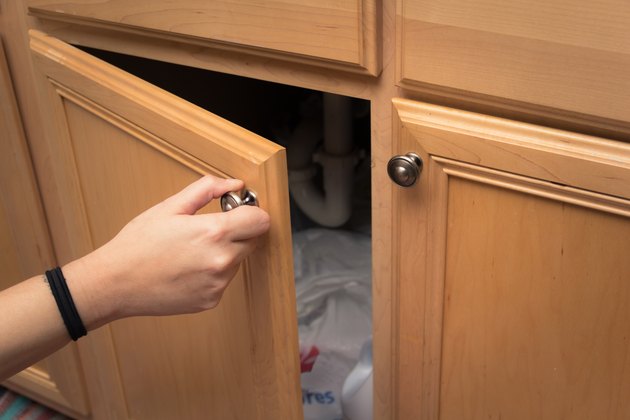
The Culprit: Excess Moisture
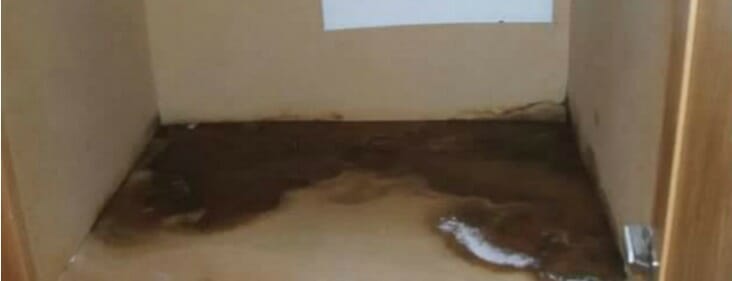 We've all experienced it - that unpleasant, musty smell coming from under the kitchen sink. No matter how much you clean and deodorize, it seems to linger. But what is causing this damp smell in the first place? The answer is excess moisture. Under the kitchen sink, there are often pipes and drains that can leak or condensation can form on the pipes, creating a perfect breeding ground for mold and mildew. Not only is this smell unpleasant, but it can also be a health hazard. So, what can you do to get rid of it and prevent it from coming back?
We've all experienced it - that unpleasant, musty smell coming from under the kitchen sink. No matter how much you clean and deodorize, it seems to linger. But what is causing this damp smell in the first place? The answer is excess moisture. Under the kitchen sink, there are often pipes and drains that can leak or condensation can form on the pipes, creating a perfect breeding ground for mold and mildew. Not only is this smell unpleasant, but it can also be a health hazard. So, what can you do to get rid of it and prevent it from coming back?
Step 1: Identify and Fix Any Leaks
 The first step in preventing a damp smell under your kitchen sink is to identify and fix any leaks. Check all the pipes and drains for any signs of water leakage. This could include drips, puddles, or even dampness on the surrounding area. If you find any leaks, repair or replace the affected parts immediately. This will not only help get rid of the smell but also prevent further damage to your kitchen.
The first step in preventing a damp smell under your kitchen sink is to identify and fix any leaks. Check all the pipes and drains for any signs of water leakage. This could include drips, puddles, or even dampness on the surrounding area. If you find any leaks, repair or replace the affected parts immediately. This will not only help get rid of the smell but also prevent further damage to your kitchen.
Step 2: Keep the Area Dry
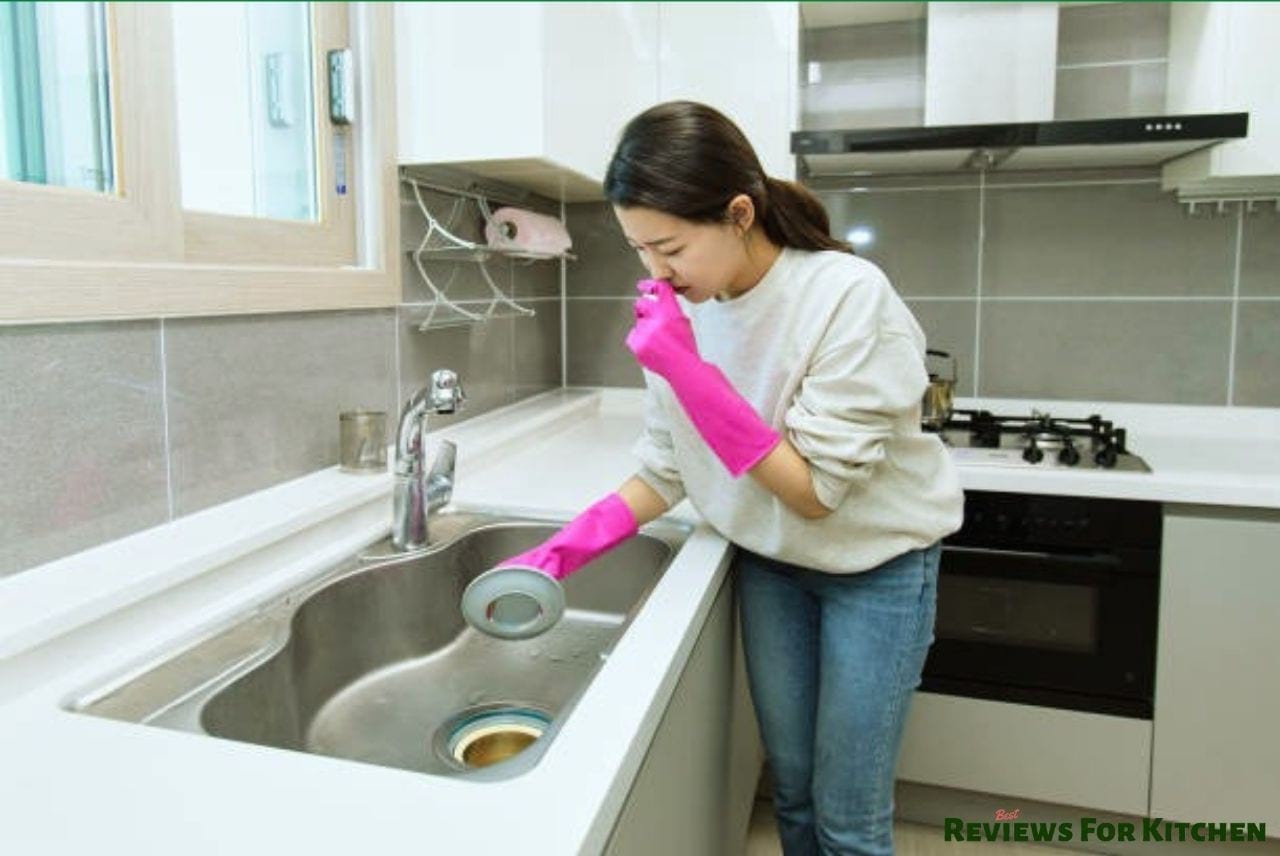 Once you have fixed any leaks, it's important to keep the area under your kitchen sink as dry as possible. Wipe down the pipes and drains regularly to prevent any moisture buildup. You can also use a dehumidifier or a fan to help dry out the space. Additionally, consider adding a moisture-absorbing product, such as
baking soda
or
activated charcoal
, under the sink to help absorb any excess moisture.
Once you have fixed any leaks, it's important to keep the area under your kitchen sink as dry as possible. Wipe down the pipes and drains regularly to prevent any moisture buildup. You can also use a dehumidifier or a fan to help dry out the space. Additionally, consider adding a moisture-absorbing product, such as
baking soda
or
activated charcoal
, under the sink to help absorb any excess moisture.
Step 3: Proper Ventilation
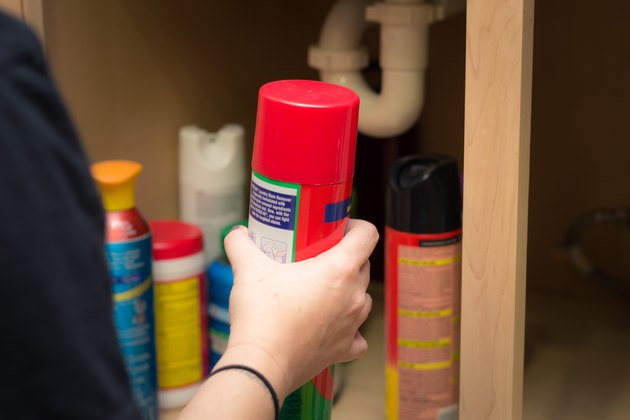 Another important factor in preventing a damp smell under your kitchen sink is proper ventilation. Make sure the area is well-ventilated by opening a window or turning on a fan. This will help prevent any condensation from forming on the pipes. You can also install a vent or exhaust fan specifically for the kitchen sink area to improve air circulation and prevent moisture buildup.
Another important factor in preventing a damp smell under your kitchen sink is proper ventilation. Make sure the area is well-ventilated by opening a window or turning on a fan. This will help prevent any condensation from forming on the pipes. You can also install a vent or exhaust fan specifically for the kitchen sink area to improve air circulation and prevent moisture buildup.
Step 4: Regular Cleaning
 Regularly cleaning the area under your kitchen sink is crucial in preventing a damp smell. Wipe down the pipes and drains with a mixture of
vinegar
and
water
to kill any mold or mildew that may be growing. You can also use a
disinfectant spray
to keep the area clean and fresh.
Regularly cleaning the area under your kitchen sink is crucial in preventing a damp smell. Wipe down the pipes and drains with a mixture of
vinegar
and
water
to kill any mold or mildew that may be growing. You can also use a
disinfectant spray
to keep the area clean and fresh.
Step 5: Check for Proper Insulation
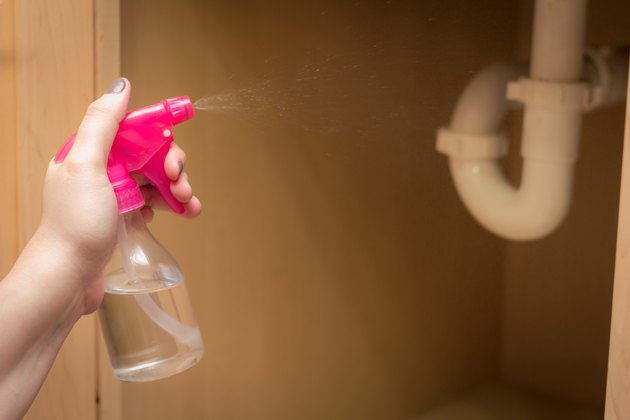 If you live in a colder climate, it's important to make sure the pipes under your kitchen sink are properly insulated. This will prevent them from freezing and potentially bursting, causing water leakage. You can use
pipe insulation
or
heat tape
to protect your pipes and prevent any damp smells from forming.
If you live in a colder climate, it's important to make sure the pipes under your kitchen sink are properly insulated. This will prevent them from freezing and potentially bursting, causing water leakage. You can use
pipe insulation
or
heat tape
to protect your pipes and prevent any damp smells from forming.
In Conclusion
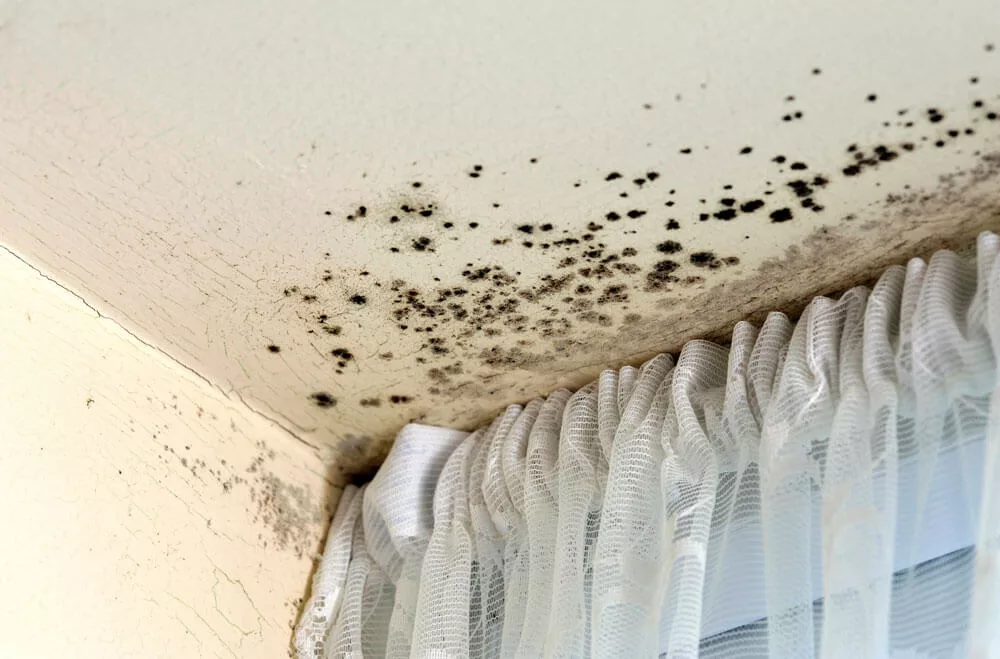 A damp smell under the kitchen sink can be a nuisance, but with these simple steps, you can prevent it from recurring. By fixing any leaks, keeping the area dry and well-ventilated, regularly cleaning, and ensuring proper insulation, you can say goodbye to that musty smell and hello to a fresh and clean kitchen. Don't let a damp smell ruin your kitchen design - take action to prevent it now.
A damp smell under the kitchen sink can be a nuisance, but with these simple steps, you can prevent it from recurring. By fixing any leaks, keeping the area dry and well-ventilated, regularly cleaning, and ensuring proper insulation, you can say goodbye to that musty smell and hello to a fresh and clean kitchen. Don't let a damp smell ruin your kitchen design - take action to prevent it now.


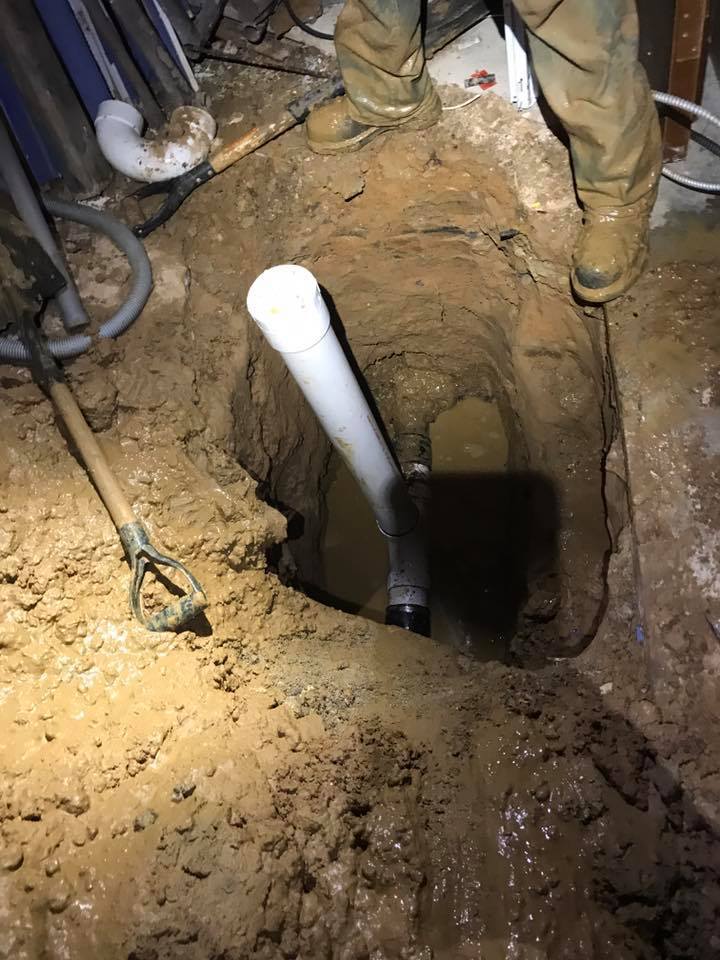


/pvc-joint-repair-2718924-color-FINAL-86df124f8a7647adb2aa514759a37d39.png)
